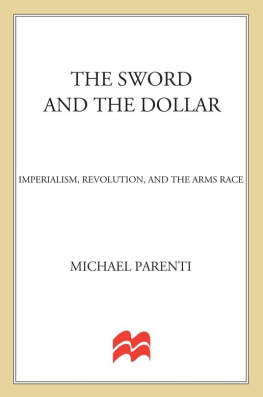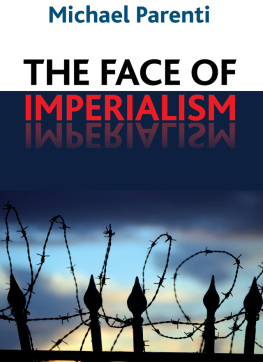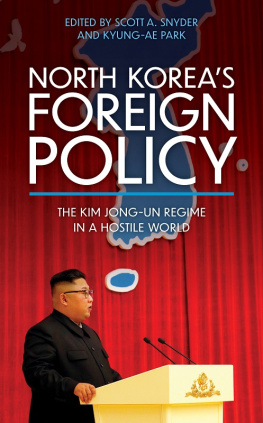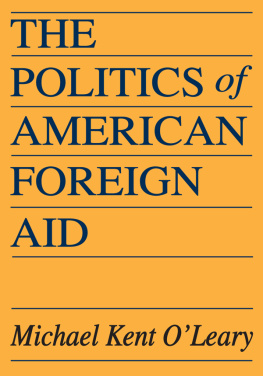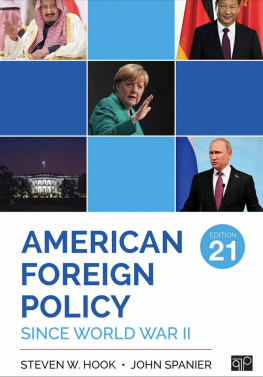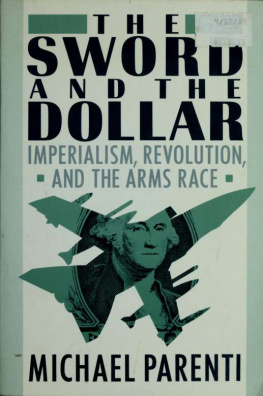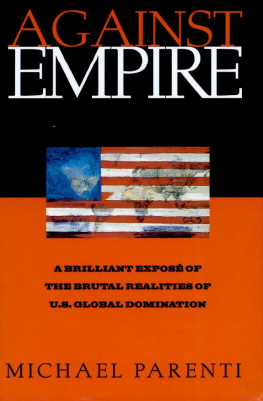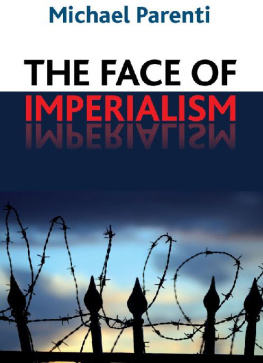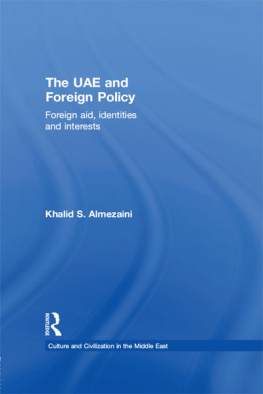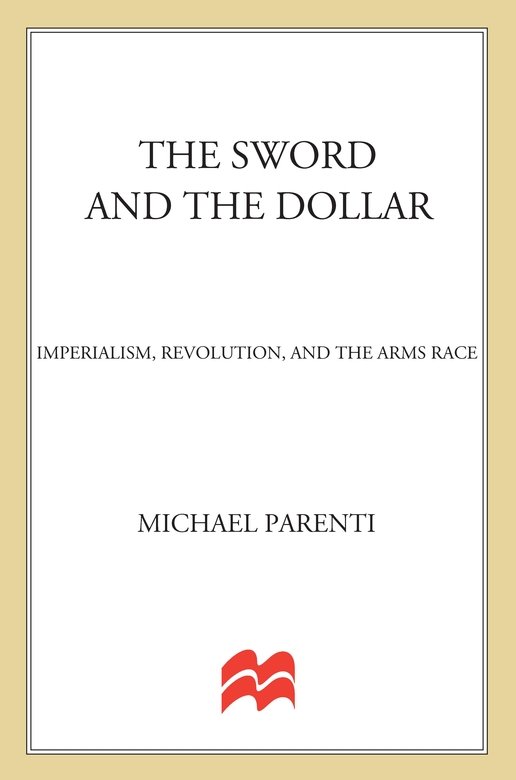For readers who wish to pursue further some of the subjects treated in this book, the following titles are recommended.
General treatments of imperialism:
Berberoglu, Berch. The Internationalization of Capital: Imperialism and Capitalist Development on a World Scale. New York: Praeger, 1987.
Lenin, V. I. Imperialism, The Highest Stage of Capitalism. New York: International Publishers, 1937.
Magdoff, Harry. The Age of Imperialism. New York: Monthly Review Press, 1968.
Marx, Karl, and Frederick Engels. On Colonialism (selected writings). New York: International Publishers, 1972.
Polyansky, F. An Economic History, The Age of Imperialism (1870-1917). Moscow: Progress Publishers, 1973 (available from Imported Publications, Chicago).
Rodney, Walter. How Europe Underdeveloped Africa. Washington, D.C.: Howard University Press, 1974.
Stavrianos, L.S. Global Rift, The Third World Comes of Age. New York: William Morrow, 1981.
Szymanski, Albert. The Logic of Imperialism. New York: Praeger, 1981.
US foreign policy and counterrevolutionary interventionism:
Blum, William. The CIA, A Forgotten History . London: Zed, 1986.
Chomsky, Noam, and Edward Herman. The Washington Connection and Third World Fascism. Boston: South End Press, 1979.
Chomsky, Noam, and Edward Herman. After the Cataclysm. Boston: South End Press, 1979.
Gettleman, Marvin, Jane Franklin, Marilyn Young, and H. Bruce Franklin, eds. Vietnam and America, A Documented History. New York: Grove Press, 1985.
Herman, Edward, The Real Terror Network. Boston: South End Press, 1982.
Morley, Morris, and James Petras. The Reagan Administration and Nicaragua: How Washington Constructs its Case for Counterrevolution in Central America. (Forward by Noam Chomsky and Afterword by Michael Parenti.) New York: Institute for Media Analysis, 1987.
On how the US news media distort and suppress information about US foreign policy:
Aronson, James. The Press and the Cold War, Boston: Beacon Press, 1970.
Parenti, Michael. Inventing Reality: The Politics of the Mass Media. New York: St. Martins Press, 1986.
On the suppressed history of earlier East-West relations:
Alperovitz, Gar. Atomic Diplomacy, Hiroshima and Potsdam. rev. ed. New York: Viking, 1985.
Sevostyanov, Pavel. Before the Nazi Invasion. Moscow: Progress Publishers, 1981 (available from Imported Publications, Chicago).
Williams, William Appleman. American Interventionism in Russia: 1917-20, in David Horowitz, ed. Containment and Revolution. Boston: Beacon Press, 1967.
The arms race and the cold war:
Aldridge, Robert. First Strike! Boston: South End Press, 1983.
Gerson, Joseph. ed. The Deadly Connection, Nuclear War and U.S. Intervention. Philadelphia: New Society Publishers, 1986.
Gervasi, Tom. The Myth of Soviet Military Supremacy. New York: Harper and Row, 1986.
Halliday, Fred. The Making of the Second Cold War . London: Verso, 1983.
A Policy neither Fainthearted nor Foolish
Why does the United States support right-wing autocracies around the world? Why is it antagonistic toward revolutionary movements and most socialist countries? Why does the United States intervene in other countries with military aid, embargoes, surrogate counterrevolutionary forces, and the US military? Why does the United States have military bases all around the world? Why does it spend hundreds of billions yearly on military appropriations? Why do Washington and Moscow have nuclear arsenals that can blow up the world many times over? In this book, I propose to answer these and other such questions and show that they are very much related to each other.
The debate over US foreign policy, as conducted in the political mainstream by liberals and conservatives, is a narrow one that evades the great realities of political economy. Conservatives argue that our policy has been no-win and fainthearted, that we too often play the helpless giant pushed around by third-rate powers, that we fail to stand up sufficiently to the Soviet challenge and have fallen dangerously behind the USSR in military capability, and that the Communist tide will soon be lapping at our bordersas Ronald Reagan put itunless we squelch revolutionary movements in this hemisphere and elsewhere.
According to conservatives the world is inhabited by terrorist hit squads, evil empires, Communist aggressors, and other such mortal threats. Like the bloodthirsty savages of some Hollywood western or jungle epic, or the alien creatures of a science fiction film, these enemies are motivated not by any concern for their own welfare, but by a mindless impulse to destroy or subjugate us. So we must draw the Free World wagon train in a circle, a defensive perimeterthat includes almost all of Europe, Asia, Africa, Latin America, and North America. Should we falter in our resolve, slip in military strength, or try to appease or placate the predatory forces, they will be at our throats.
Liberals share much of this same ideological imagery. Like conservatives, they show concern about what is perceived to be the Soviet challenge and the growing Communist influence. They usually dare not utter a positive word about existing socialist countries. They may not necessarily believe a global Red Menace is about to engulf us, but they are terrified about being portrayed as wimps who are soft on Communism. So they end up acting as wimps to the conservatives, toeing the conservative line on most foreign-policy issues.
However, some liberals (and some fewer conservatives) believe an accommodation can be reached with the Soviet Union, to avoid blowing up the world. Liberals also argue that if we were to improve relations with Moscow, we then could better concentrate on preventing the spread of Communism in the Third World. Like conservatives, liberals want a strong military. They tend to vote for gargantuan defense budgets that are only about 10 percent less than what conservatives want. Many (but not all) liberals are more reluctant to intervene with force and violence against revolutionary movements in other lands. They argue that the best way to stop Communism is by less reliance on military measures and more emphasis on reformist, nonmilitary means. Like conservatives, liberals never for a moment ask what is so urgent about stopping the Communists. They treat it as a point beyond debate (and therefore beyond rational examination) that Communism is a dreadful evil that must be contained and, if possible, eradicated.
As just noted, liberals suffer from the wimp factor, the nagging fear that they might be seen as soft on Communism. As a consequence, most of them jump on cue when the issues of anticommunism and anti-Sovietism come up. Back in 1947, when President Harry Truman initiated the loyalty programshis own witch-hunt against subversives in governmenthe remarked, Well, that should take the Communist smear off the Democratic Party. He was hoping that his imitative effort at repression would relieve Democrats of the charge of being soft on Communismwhich it did not. Liberals do not seem to realize that conservatives try to stigmatize them on the Communism issue not only because conservatives dontlike Communists but because they dont like liberals . Conservatives fear Communist revolution, but even more immediately they detest liberal reforms, which they see as taking the country down the slippery slope to socialism. So all the liberals efforts at Soviet-bashing will not save them from being labeled soft on Communism by conservatives.

